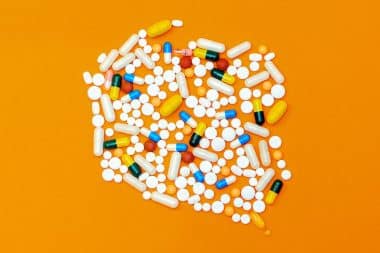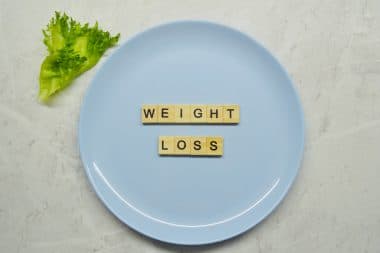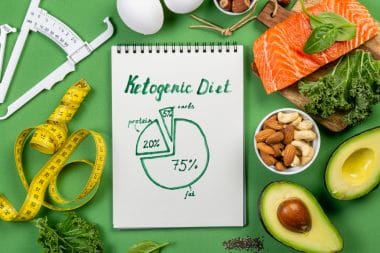Fasting according to dictionary.com is an abstinence from food, or a limiting of one’s food, or eating sparingly. Many times a fast is associated with a religious observance. In almost every culture and at any time in history there are stories of people fasting.
But if you stop and think, when we get up in the morning we eat breakfast….or in other words…we break our fast. You were fasting while you were sleeping. It is good for your body to have this nightly break from digestion.
Fasting Benefits In General:
Promotes Weight Loss – The fewer calories you consume and the more calories you burn will result in weight loss.
Improves Insulin Sensitivity – Insulin levels decrease when we are not eating because insulin is not needed. By allowing your body to stop producing insulin it makes your body handle insulin when needed more effectively.
Removes Toxins and Cleans Our Cells – Toxins from processed foods which are low in nutrients and often high in calories contribute to aging and many diseases. When you go without eating your body burns fat cells that can contain toxins which are detrimental to good health.
Improves Hunger – In America we think we get hungry but I know I don’t know what REAL hunger is like. Fasting can help the regulation of your hormones and help you identify true hunger not just eating absent mindedly.
Accurate Medical Tests – If your doctor needs to test your blood sugar or your cholesterol or a myriad of other things. They will probably ask you to fast before your test. This fast helps them get a more accurate picture of your health.
What is Intermittent Fasting?
Intermittent fasting (IF) is an approach to overall health improvement where you fast for a certain number of hours and then consume all your daily calories in a restricted number of consecutive hours. Many who intermittent fast follow the 16:8 Plan. You fast for 16 hours (NO FOOD AT ALL) then you have a window of 8 hours in which you consume all your calories.
Here are some examples of 8 hour windows where you can eat:
- 9 am to 5 pm
- 10 am to 6 pm
- Noon to 8 pm
The hours of fasting include when you sleep. And you then need to pick a window of time to eat that fits your life’s schedule. The flexibility of this is nice because you have some control over what works best for you.
Here is the good news! Many people are finding weight loss and better health following this plan.
You don’t necessarily have to watch what you eat in that 8 hour window. But you are smart if you will. The better nutrition you consume the better you will feel and the better overall health results you will have. If weight loss is your goal you need to not go crazy and eat whole cakes…..calories still mater. And your body needs adequate nutrition to function properly.
According to a Health.Harvard article:Â Between meals, as long as we don’t snack, our insulin levels will go down and our fat cells can then release their stored sugar, to be used as energy. We lose weight if we let our insulin levels go down. The entire idea of IF is to allow the insulin levels to go down far enough and for long enough that we burn off our fat.
So fat loss, weight loss, insulin sensitivity this all sounds good. There are even some studies showing a boost in metabolism, increased longevity, help prevent type 2 diabetes, lowers blood glucose, lessens arthritis pain, clears up skin issues, improves mood and heals the digestive tract.
Does Intermittent Fasting Work?
I have to say it does. Many people are finding a way to eat and better their overall health sticking to the IF plan. My husband faithfully followed this plan with weight loss success. For many the loose structure of restrictions (the only restriction being the window of time you can eat) feels less like a diet and more like a choice. You feel less restricted. Another bonus, by not eating close to bedtime there was less heartburn.
Will it work for everyone? Probably not no diet works for everyone but this could be one worth trying if you are looking.
Â
Tips For Intermittent Fasting Success?
- Eat meals and snacks as needed and convenient during your eating window.
- Avoid making your eating window close to bedtime. You don’t want digestion happening while you sleep.
- Avoid high calorie low in nutrition foods. (You are doing this to get healthier). But do not restrict your food choices so much that you can’t stick to the eating window.
- Be active. Get in some exercise cardio and strengthening.
- Eat a wide variety of natural healthy foods whenever possible.
- Consume plenty of water.
- You can drink water outside of the 8 hour window. Do not allow yourself to become dehydrated.
Possible Side Effects from IF:
- Hunger
- Weakness
- Tiredness
- Overeating due to hunger
- Heartburn due to overeating
Do NOT Fast IF:
- You are pregnant, breast feeding or trying to conceive
- You suffer from malnutrition
- You have a medical history of cardiac arrhythmias
- You have renal insufficiency
- You have an eating disorder
Conclusion:
Always check with your doctor before starting any diet program to make sure it will be helpful for you and not harm you, particularly if you have any kind of medical condition including diabetes that you are managing.
More research is necessary to determine all the health benefits that may come from fasting in general. But it seems like the possibility of improving insulin sensitivity, reducing toxins in our bodies, improving overall cell function and reducing inflammation could have a beneficial impact to overall health. For many, intermittent fasting seems to work for weight loss, fat loss and overall health improvement. Everyone should find an eating approach that is sustainable and provides the best health possible.
Good News On Intermittent Fasting!! #HealthStatus
From The Founder Of Purium – David Sandoval
WHY “BREAKFAST” IS THE MOST IMPORTANT MEAL FOR A HEALTHY LIFE
Is breakfast really the most important meal of the day? Are we supposed to eat upon waking up? Is eating early in the day crucial to feed our body properly? Are eggs bacon and toast really the ideal breakfast?
OKAY Why is everyone so confused about breakfast? I think the reason why is because the three meal a day concept, requires a first, second and third “meal time“ and since dinner was typically in the evening, lunch at mid day, it only made sense that breakfast would be early. But all that is changing.
Today the three meal concept is being questioned and so is eating upon waking as “intermittent fasting “ has become more popular. But the question remains.. is breakfast really important or is it not? In order to answer this question, we will have to examine the very word “BREAKFAST” it literally means to break your fast. Any fast begins after your last meal and will last until your next meal, meaning that the very first meal you eat in any given day is in fact breakfast for it breaks your fast after sleeping… and WAIT FOR IT the time of day does not matter. In fact the longer you wait between your last meal yesterday and your first meal today can have real POSITIVE health implications.
I want to emphasize that while eating EARLY is NOT critical, the QUALITY breakfast IS STILL the most important factor in this most important meal of the day..
WHY? …for several important reasons. the first being it will signal your body as to what it will be capable of that day, mentally and physically, based upon the amount of nutritive raw materials (that is vitamins minerals and phyto- nutrients plus the quality of the proteins fats and carbohydrates that fuel the body.
The quality of this first meal is vitally important in the way your body reacts to stress and disease prevention. SO YES breakfast IS the most important meal of the day ( no matter the time )
AND
THE MOST IMPORTANT FOOD CHOICE OF YOUR LIFE!
Purium Top Sellers
Sources:
https://www.medicalnewstoday.com/articles/327398
https://www.lifehack.org/articles/lifestyle/10-benefits-of-fasting-that-will-surprise-you.html
https://www.dictionary.com/browse/fasting?s=t
https://www.webmd.com/diet/features/is_fasting_healthy#2








Reply